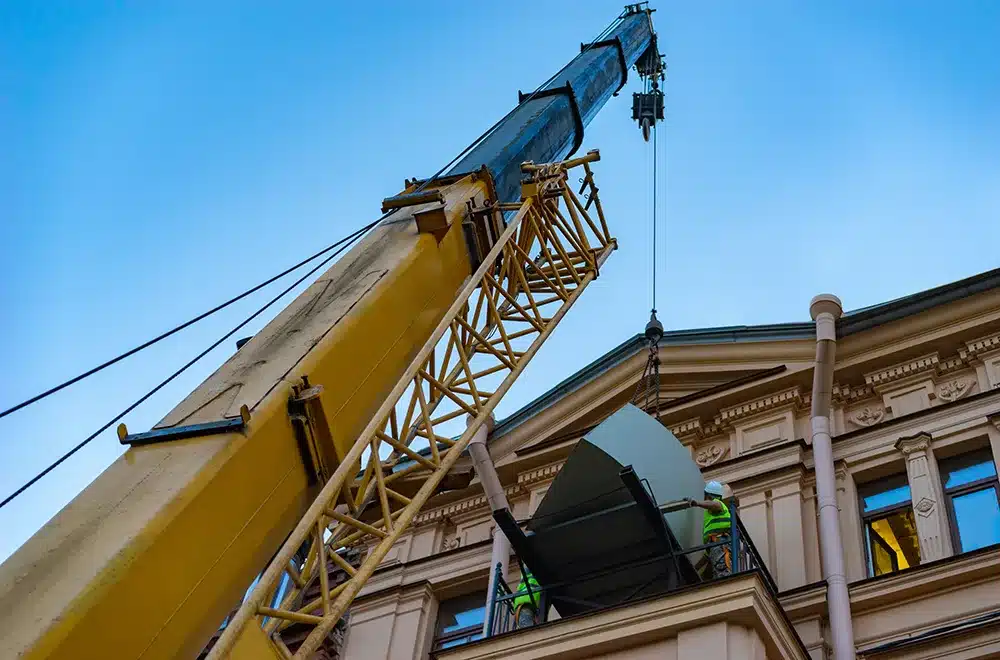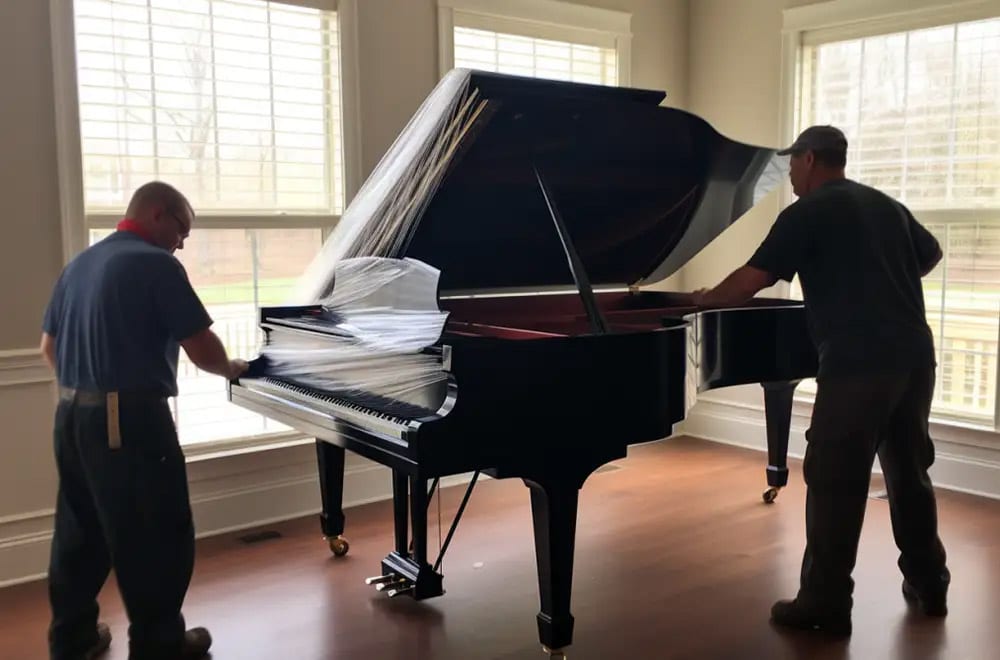Owning a piano is both a pleasure and a responsibility. It offers not only beautiful music but also serves as an elegant piece of art in any home or performance space. However, when it’s time for a move or extended period of non-use, finding suitable storage solutions becomes necessary.
One of the critical aspects to consider when choosing piano storage is the importance of a climate-controlled environment. As experts in piano moving and storage, Piano Movers of Houston understands the need for climate-controlled storage, and in this article, we’ll explain the benefits it offers.
The materials and craftsmanship that go into making a piano render it highly susceptible to changes in temperature and humidity levels. Wood, felt, and metal components within a piano can react dramatically to such fluctuations, potentially causing structural damage, warping, rust, and mold growth. Extreme or rapid changes in temperature and humidity are particularly harmful to the instrument’s soundboard, strings, and action mechanism.
Climate-controlled storage helps resolve these issues by maintaining consistent temperature and humidity levels throughout the storage facility, preventing the piano’s components from potential harm. An ideal climate for pianos entails a relative humidity of around 42 percent and a temperature of approximately 68-72°F.
In addition to protecting the piano from possible damage, climate-controlled storage can positively impact its performance, helping to maintain tuning stability and avoid alterations in its tone and touch. By opting for climate-controlled storage, you’re safeguarding not only the structural integrity of your piano but also the quality of the music it produces.
As you read on, we’ll delve deeper into the advantages of climate-controlled storage for pianos, discuss how to choose the right storage facility and share some tips for preparing your piano for storage. Knowing the ins and outs of piano storage will provide the insight and confidence needed to ensure your cherished instrument remains well-protected during its time away from home.
Temperature Control: Preserving the Structural Integrity of Your Piano
Wood, the primary material in most pianos, is exceptionally sensitive to temperature changes. High temperatures can cause the wood to expand and eventually crack, while colder temperatures can lead to contraction, putting stress on the structure. Furthermore, fluctuations in temperature can exacerbate these issues by causing rapid expansion and contraction in piano components, affecting the instrument’s durability, playability, and overall sound quality.
In a climate-controlled storage environment, the temperature remains consistent, reducing the risk of expansion or contraction in the piano’s wooden and metal components. This stability ensures the piano’s parts remain secure and maintain their proper alignment, preserving the instrument’s structural integrity and playability.
Maintaining Humidity Balance: A Key Element in Piano Storage
Similar to temperature, humidity levels play a vital role in maintaining the overall health of a piano. Excessive humidity can cause wood to absorb moisture, leading to swelling and possibly mold growth. On the other hand, low humidity can dry out the wood, making it brittle and prone to cracking or warping. The combination of fluctuating temperature and humidity leads to strain on the piano’s glue joints, soundboard, bridges, and internal mechanisms, potentially compromising its performance.
Climate-controlled storage facilities counteract these humidity-related issues by maintaining a consistent humidity level, usually between 40 and 50 percent. This stable environment protects the piano’s wooden and felt components from damage caused by moisture, ensuring your instrument’s longevity and playability.
Tuning Stability and Performance: Reaping the Benefits of Consistent Climate Conditions
Temperature and humidity fluctuations can negatively affect a piano’s pitch and tuning stability. Each time the instrument is subjected to extreme or fluctuating environmental conditions, its internal parts expand or contract, putting tension on the strings and impacting tuning and sound quality. The greater the frequency and intensity of these changes, the more likely the piano will require frequent and costly tuning adjustments.
By storing your piano in a climate-controlled facility, you minimize the impact of temperature and humidity changes on tuning stability. Consequently, your piano will maintain a more consistent pitch and produce superior sound quality when brought into a performance space or back to your home.
Choosing a Reputable Climate-Controlled Storage Facility: Factors to Consider
When selecting a climate-controlled storage facility for your piano, several factors should be considered to ensure your instrument’s safety and well-being. Consider the following aspects when making your decision:
1. Consistent Climate Conditions: The facility should maintain stable temperature and humidity levels throughout the storage area. Ask the storage provider about their climate control technology and measures to ensure proper conditions are sustained.
2. Security Measures: Your piano is a valuable asset, both financially and emotionally. Ensure the storage facility employs robust security measures, such as surveillance cameras, alarm systems, and secure access controls.
3. Accessibility: It’s crucial that you can easily access your piano when needed without compromising its security. Look for storage facilities that offer convenient access hours while maintaining strong security protocols.
4. Cleanliness: A clean storage facility decreases the likelihood of pest infestation, mold growth, or other issues that could damage your piano. Visit the storage location in person and ensure the facility is well-maintained and clean.
5. Insurance Coverage: Inquire about the storage provider’s insurance policy to understand the level of coverage for your piano during its stay. It’s essential to have adequate insurance protection in the event of unforeseen damages or losses.
The Value of Climate-Controlled Storage for Your Piano
Investing in climate-controlled storage for your piano is a wise decision, providing countless benefits that can significantly impact the life and performance of your cherished instrument. The stable environment preserves the piano’s structural integrity, maintains tuning stability, and ensures consistent sound quality. Moreover, choosing a reputable storage facility with proper security measures, accessibility, and insurance coverage offers added peace of mind.
By entrusting your precious instrument to a reliable piano moving company in Houston like Piano Movers of Houston, you can be confident that your instrument is well-protected and cared for, whether it’s stored for a few months or an extended period. Your investment in proper storage will pay off tenfold, allowing you to continue enjoying the beauty and music of your piano for years to come. Get in touch with us today!
Related Posts

How to Handle Moving a Piano to an Outdoor Venue for Events

How Professional Piano Movers Use Cranes and Specialized Equipment
